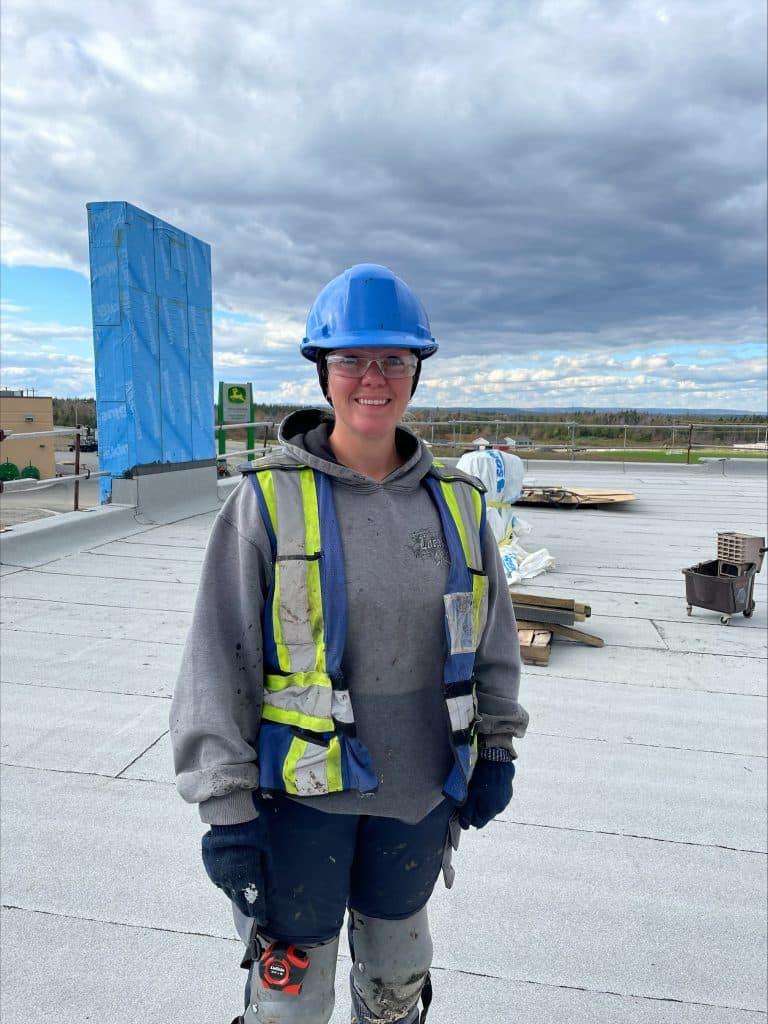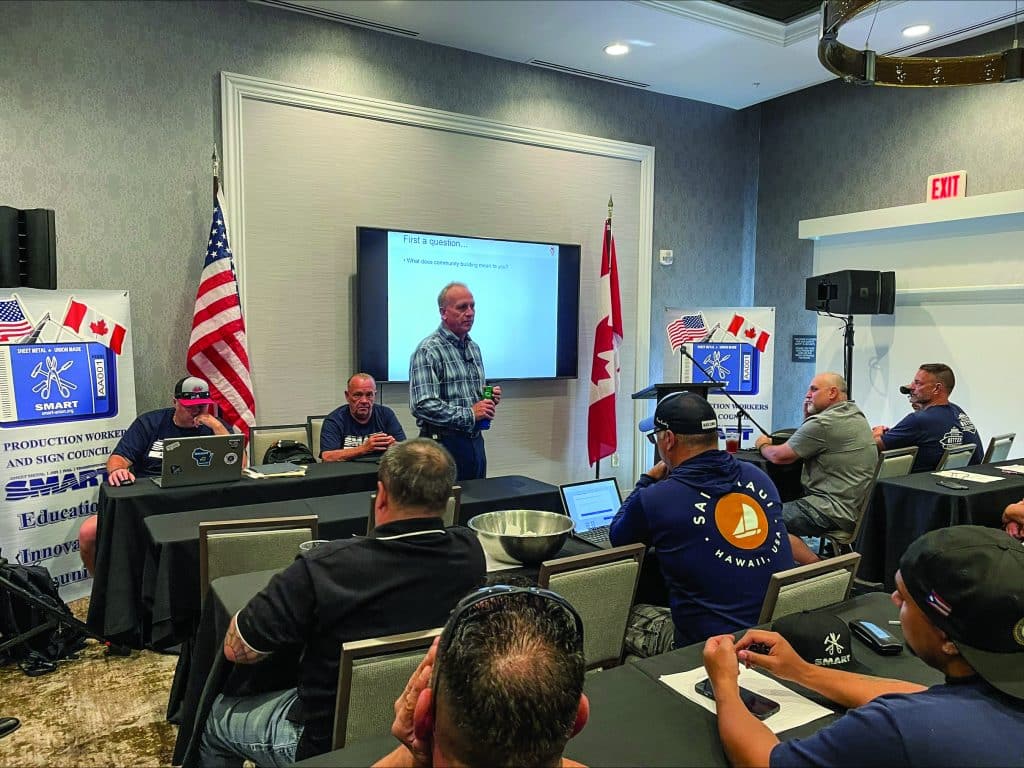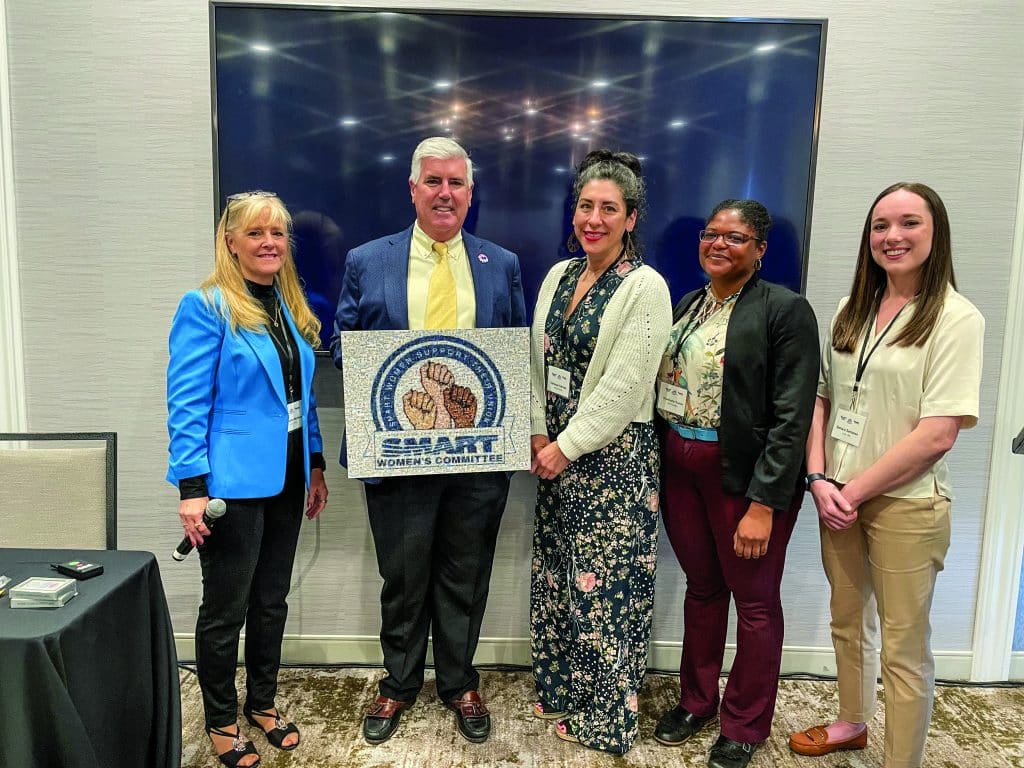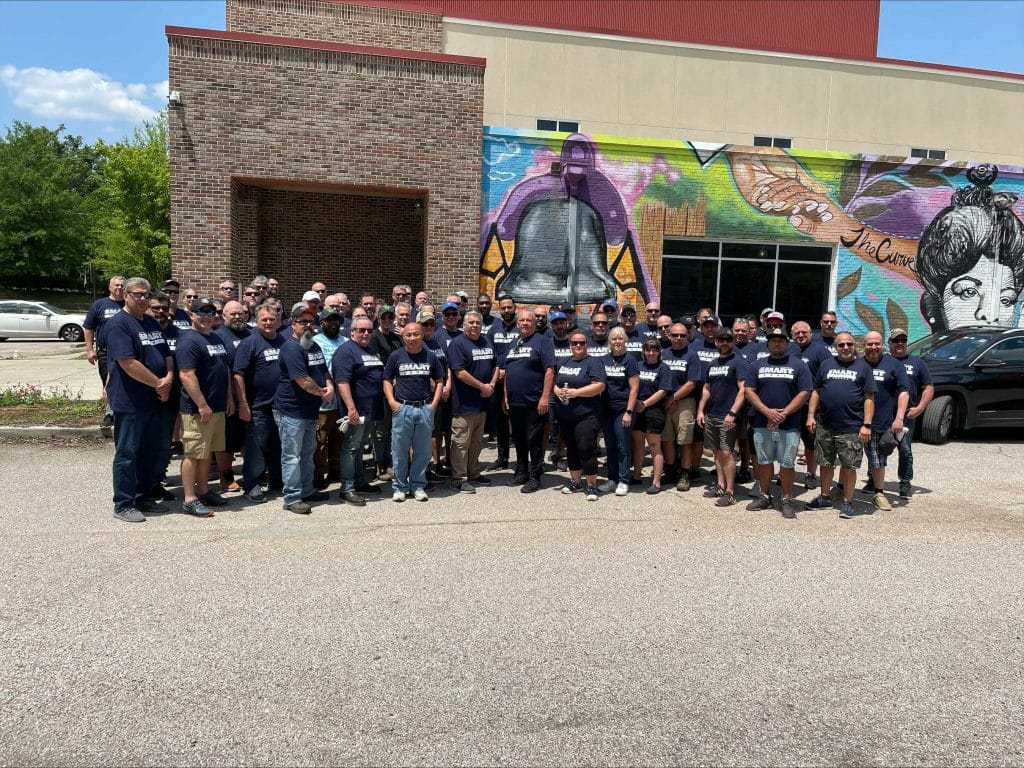SM Local 56 (Nova Scotia) roofer Alexis Lynk enjoys working with her hands. Even before she became a union roofer, she was no stranger to hands-on labor, serving customers and navigating hectic, fast-paced work situations in the service industry.
“I worked at McDonald’s for nine years,” Lynk said. “But I wasn’t making ends meet with the wages I had.”
The subpar pay led her to enroll in a trade apprenticeship through Women Unlimited, a program that introduces women to various trades via practical experience. Through that process, Lynk found her niche in roofing. And while the Women Unlimited program wasn’t her first encounter with the trades — her father was a tradesperson, and she dabbled in some trades work in high school — the mentorship and learning model cemented the union roofing industry as her new career path.
“When I come to work and I’m scared to do something, I have people to guide me,” Lynk explained. “They don’t just do it for me, they go through it with me step-by-step, so later I can do it on my own.”

Now, she is back at a McDonald’s — but this time as a roofer, working on top of the building rather than within it.
As the only female roofer on the jobsite, Lynk recalled feeling slightly nervous during her first days at work. She worried how people would perceive her skill set on the job. However, her nerves quickly abated as she found fellow brothers and sisters in the union roofing industry who supported her.
“A lot of the time, [even if] I don’t believe in myself, these people believe in me,” she said. Now, she is confident in her ability. The knowledge she learned through the apprenticeship program has given her skills to take on a variety of jobs, and as her confidence has grown, so has her feeling of belonging at the worksite. In five years, Lynk has no doubt she will be a Red Seal roofer. With her apprenticeship completed, the sky is truly the limit.
“When you say ‘yes’ to opportunities, pathways open and things are more accessible,” Lynk concluded. “I know it’s easy to say, ‘just jump in and do it.’ But if you put in yourself first, you’re going to go far.”




